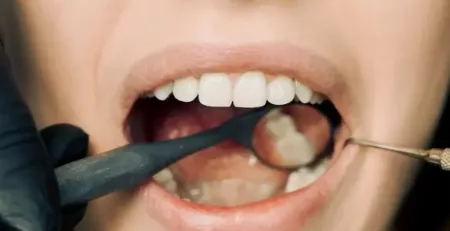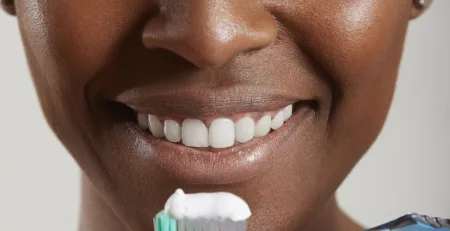The Pros and Cons of Charcoal Toothpaste for Teeth Whitening
Introduction
Charcoal Toothpaste for Teeth Whitening
Charcoal toothpaste is one of the latest trends in the world of oral care and beauty. It is a type of toothpaste that contains activated charcoal, a black powder made from natural substances such as wood, coconut shells, or coal.
Activated charcoal is known for its ability to absorb toxins and chemicals from the body, and it is widely used in medicine and cosmetics. But can it also whiten your teeth?
In this article, we will explore the pros and cons of using charcoal toothpaste for teeth whitening.
We will also compare it with regular whitening toothpaste and other natural teeth-whitening remedies. By the end of this article, you will have a better understanding of whether charcoal toothpaste is right for you and your smile.
How does charcoal toothpaste work?
Charcoal toothpaste works by using the abrasive and absorbent properties of activated charcoal to remove surface stains from your teeth.
Charcoal is mildly abrasive, which means it can scrub away plaque and stains caused by foods, drinks, or smoking.
Charcoal is also highly absorbent, which means it can bind with bacteria, odors, and toxins in your mouth and prevent them from sticking to your teeth.
However, charcoal toothpaste does not work on intrinsic stains, which are those that are embedded in the enamel or dentin layers of your teeth. Intrinsic stains are caused by factors such as ageing, genetics, medications, or trauma.
To remove intrinsic stains, you need a product that can penetrate into the deeper layers of your teeth and bleach them. This is what regular whitening toothpastes and professional whitening treatments do.
What are the pros of charcoal toothpaste?
Some of the benefits of using charcoal toothpaste are:
– It may help remove surface stains from your teeth, making them look brighter and whiter.
– It may help freshen your breath by absorbing odors and bacteria from your mouth.
– It may help reduce plaque and tartar buildup on your teeth, which can prevent cavities and gum disease.
– It may be more natural and eco-friendly than regular toothpaste, as it contains fewer chemicals and artificial ingredients.
What are the cons of charcoal toothpaste?
Some of the possible drawbacks of using charcoal toothpaste are:
– It may be too abrasive for your teeth, especially if you use it too often or brush too hard. This can wear down your enamel, making your teeth more sensitive and prone to decay.
– It may not contain fluoride, which is an essential mineral that strengthens your enamel and protects your teeth from cavities. Fluoride also helps remineralise your enamel after it has been eroded by acids.
– It may stain your teeth, gums, tongue, or dental work if you have cracks, gaps, or fillings in your teeth. Charcoal particles can accumulate in these areas and create a dark or grey appearance.
– It may not be effective for whitening your teeth if you have intrinsic stains that are deeper than the surface level. You may need a stronger product or a professional treatment to achieve the desired results.
How does charcoal toothpaste compare with regular whitening toothpaste?
Regular whitening toothpastes contain abrasives and bleaching agents that aim to whiten your teeth by removing both surface and intrinsic stains. Some common ingredients in whitening toothpastes are:
- Hydrogen peroxide or carbamide peroxide: These are bleaching agents that can penetrate into the enamel and dentin layers of your teeth and break down the molecules that cause stains.
- Sodium bicarbonate or baking soda: This is an abrasive that can scrub away surface stains and plaque from your teeth. It also has a mild whitening effect due to its alkaline nature.
- Silica or calcium carbonate: These are abrasives that can polish your teeth and remove surface stains and discoloration.
The pros of using regular whitening toothpastes are:
- They can whiten your teeth more effectively than charcoal toothpastes by targeting both surface and intrinsic stains.
- They usually contain fluoride, which can strengthen your enamel and prevent cavities.
- They are widely available and affordable.
The cons of using regular whitening toothpastes are:
- They may cause sensitivity or irritation in some people due to the bleaching agents or abrasives.
- They may not be suitable for people with dental work such as veneers, crowns, or fillings, as they may damage or discolour them.
- They may contain chemicals or artificial ingredients that some people may want to avoid.
What are some other natural teeth-whitening remedies?
If you are looking for some natural alternatives to whiten your teeth, you may want to try some of these home remedies:
- Oil pulling: This is an ancient Ayurvedic practice that involves swishing oil (such as coconut, sesame, or sunflower oil) in your mouth for 15 to 20 minutes. This can help remove bacteria, plaque, and toxins from your mouth and whiten your teeth.
- Turmeric: This is a spice that has anti-inflammatory and antibacterial properties. You can make a paste by mixing turmeric powder with water or coconut oil and apply it to your teeth for a few minutes. Then rinse it off and brush your teeth as usual. This can help reduce inflammation, fight infections, and whiten your teeth. Apple cider vinegar: This is a natural acid that can help dissolve stains and plaque from your teeth. You can dilute it with water and use it as a mouthwash or rub it on your teeth with a cotton swab. However, you should not use it too often or leave it on your teeth for too long, as it can damage your enamel.
- Strawberries: These are fruits that contain malic acid, which can help remove surface stains from your teeth. You can mash some strawberries and mix them with baking soda to make a paste. Then apply it to your teeth for a few minutes and rinse it off. This can help brighten your smile and freshen your breath.
Conclusion
Charcoal toothpaste is a type of toothpaste that contains activated charcoal, a black powder that can absorb toxins and chemicals from the body. It may help remove surface stains from your teeth, but it may not be effective for whitening intrinsic stains or preventing cavities. It may also have some side effects such as abrasion, staining, or sensitivity.
Regular whitening toothpastes contain abrasives and bleaching agents that can whiten your teeth by removing both surface and intrinsic stains. They usually contain fluoride, which can strengthen your enamel and prevent cavities. However, they may also cause sensitivity or irritation in some people or damage or discolour dental work.
Other natural teeth-whitening remedies include oil pulling, turmeric, apple cider vinegar, and strawberries. These may help whiten your teeth by removing bacteria, plaque, and stains from your mouth. However, they may not be as effective or safe as professional whitening treatments.
The best way to whiten your teeth is to consult your dentist and follow their recommendations. They can advise you on the most suitable product or treatment for your teeth and monitor the results and side effects. They can also help you maintain good oral hygiene and prevent further staining or damage to your teeth.
References
(1) Charcoal Toothpaste for Teeth Whitening: Does It Work? – Healthline. https://www.healthline.com/health/dental-and-oral-health/charcoal-toothpaste.
(2) Charcoal Toothpaste: Is It Safe and Does It Work? – Verywell Health. https://www.verywellhealth.com/charcoal-toothpaste-5214587.
(3) Charcoal Toothpaste Benefits and Risks – Dr. Kami Hoss. https://drkamihoss.com/charcoal-toothpaste-need-to-know/.




Leave a Reply